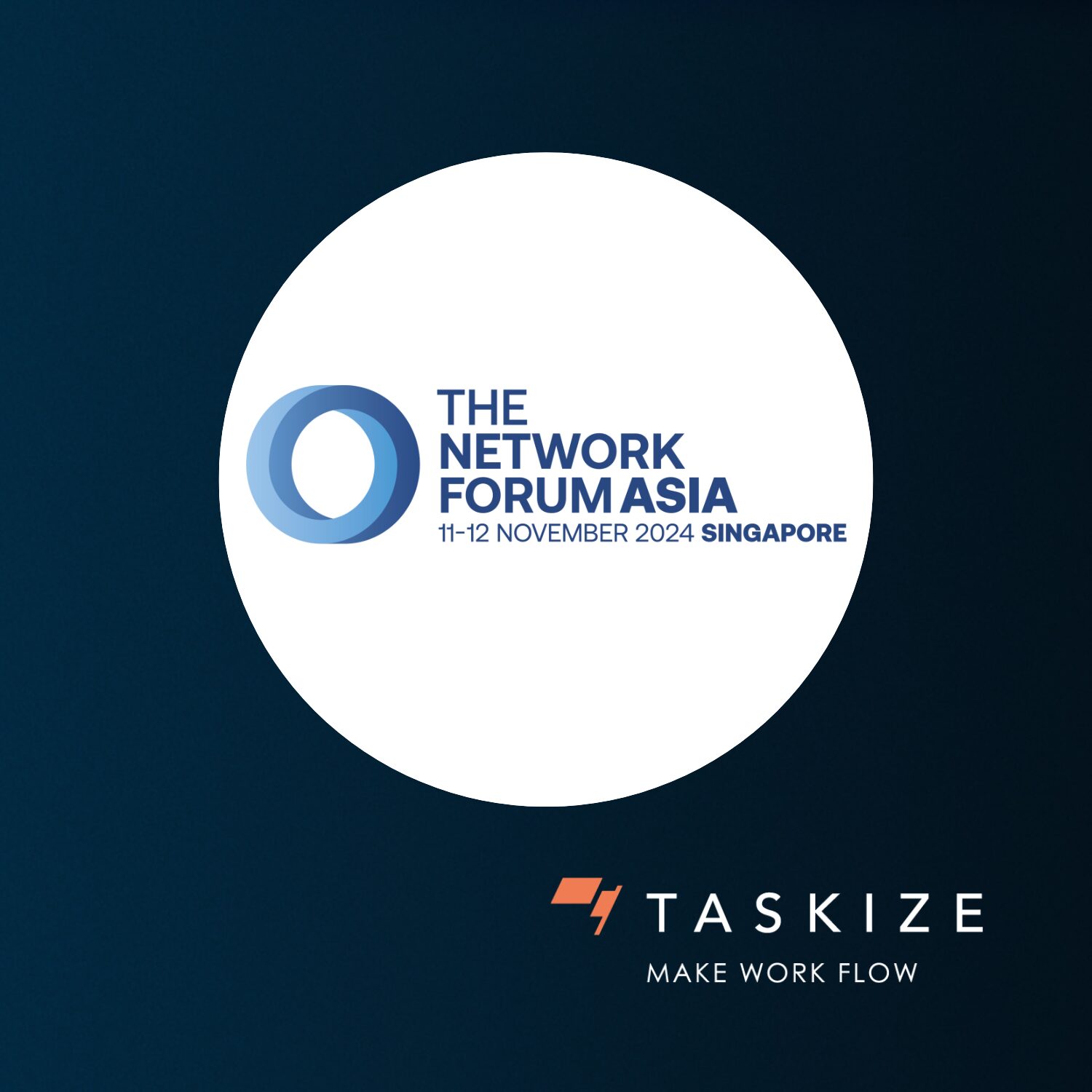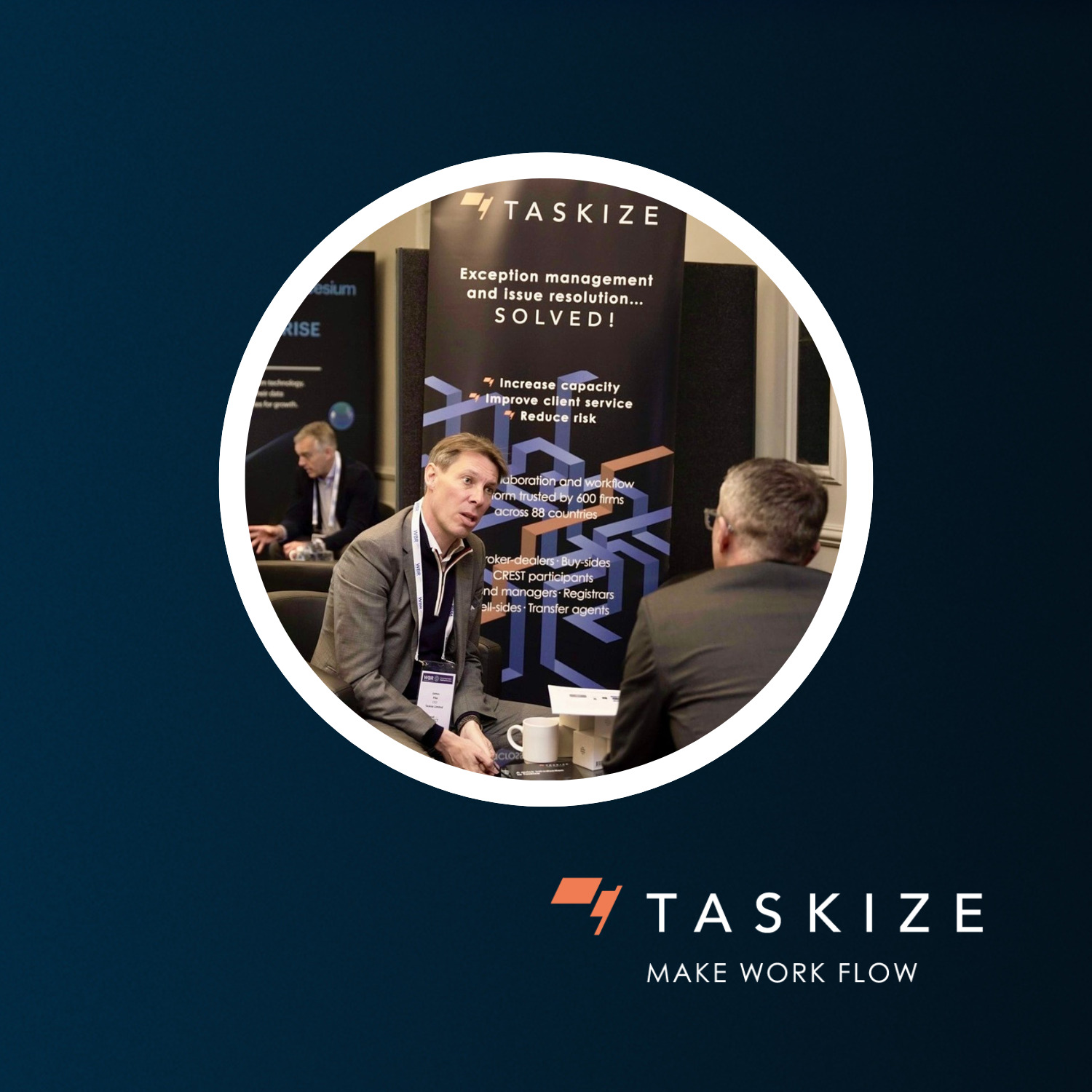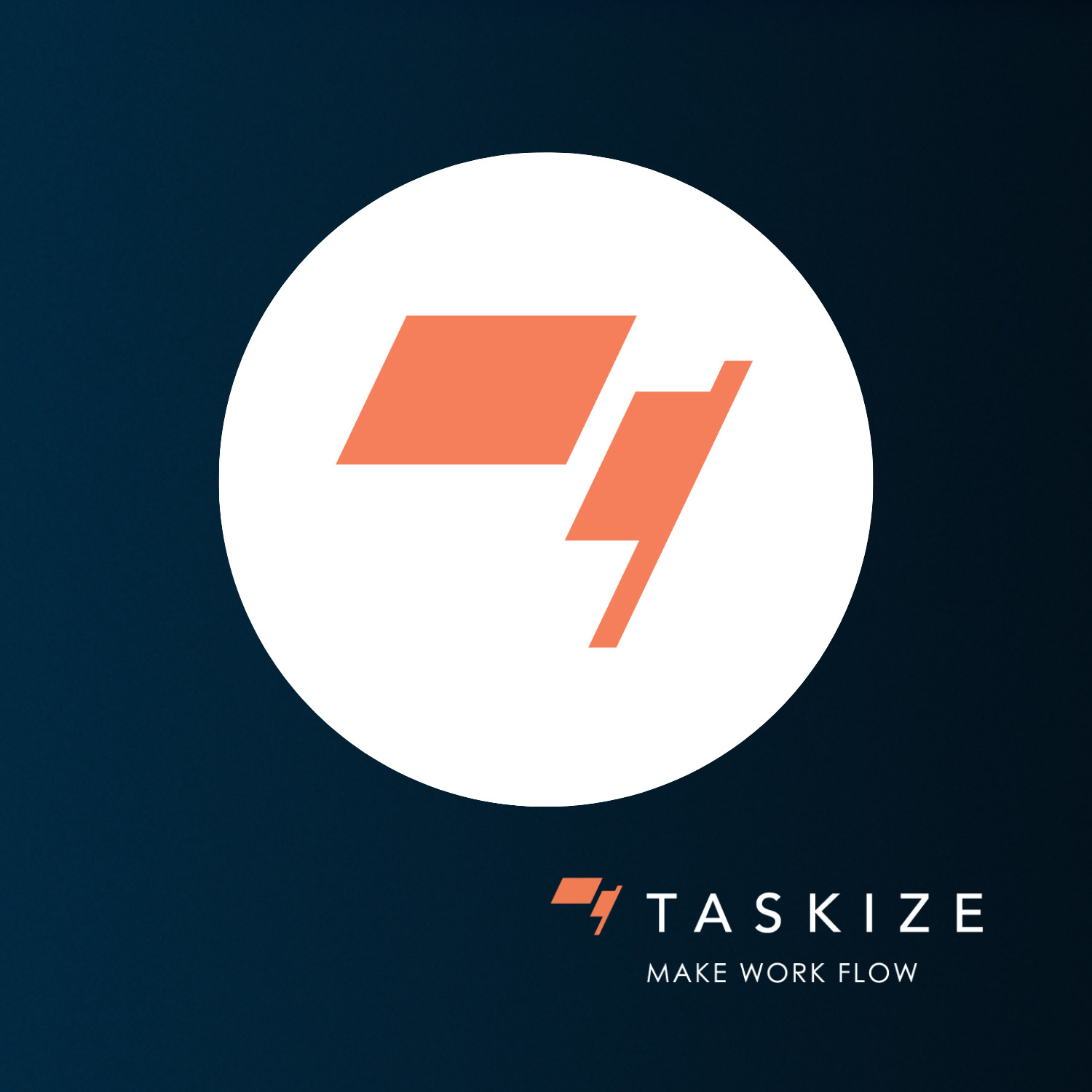Fintech interoperability for post-trade ops – The 6 big questions
In this new video and Q&A deep dive, Taskize brings together fintech industry leaders to discuss the future of post-trade operations.
Read and watch a fascinating session chaired by our Head of Partnerships Simon Gibbs as he interviews Taskize partners Daniel Carpenter, CEO of Meritsoft, Elena Parigi Adragna, Operations Workflows Director at Symphony, and John Bevil, Capital Markets Product Director at Xceptor.
All speakers highlighted the significant value that multi-platform integrations bring to securities settlements, corporate actions, and collateral management, while also addressing their impact on regulatory risk, team capacity, and client service.
The session brings to life six key questions that address core industry challenges and opportunities.
1. 'The compliance question’
Daniel emphasises the critical nature of interoperability in meeting regulatory demands. He highlights the need for automation and robust audit trails to ensure compliance and efficient operations. Daniel also points out the limitations of traditional communication methods like email and stressed the importance of modern solutions that provide comprehensive audit capabilities:
"Legacy systems often fall short in providing the necessary audit trails required by today's stringent regulatory environment. Automated and integrated solutions are not just beneficial; they are essential for compliance."
Elena spotlights the regulatory landscape - drawing from her extensive experience in banking operations - and underscores the challenges posed by legacy systems and the necessity for vendors to provide compliant, efficient solutions that align with regulatory requirements:
"Capturing communications across various platforms, including trades executed via WhatsApp, is crucial to meet regulatory standards. Vendors must ensure their solutions are compliant and capable of integrating diverse communication channels."
2. ‘The customer experience question'
The panelists agreed that interoperability and collaboration among fintechs are essential for improving customer service. By integrating diverse platforms and ensuring seamless communication, Taskize and its partners can help banks and financial institutions deliver superior service without compromising on compliance or operational efficiency.
Daniel illustrates this point with examples from Meritsoft, a Cognizant business, demonstrating how a single integrated platform can provide a unified view of operations, reducing the need for manual interventions and minimising risks associated with legacy systems:
"A unified view of operations through an integrated platform not only enhances efficiency but also significantly improves customer service by reducing errors and delays."
Elena added that the ability to tailor solutions to specific client needs while maintaining interoperability is key to delivering value:
"Flexibility and scalability are crucial. Vendors must work together to create solutions that can adapt to the diverse requirements of their clients, ensuring superior service and satisfaction."
To address this, Symphony integrates with Taskize to enable real-time collaboration – cross-company and internally – between users on both platforms. As a result, all parties benefit from the Taskize platform’s workflow, routing and business intelligence capabilities, whilst remaining in their platform of choice.
3. 'The legacy question'
Addressing the issue of legacy systems, the panelists acknowledged the difficulties in transitioning from outdated technologies and the necessity of modernisation to stay competitive.
John flags the tendency of organisations to tolerate inefficiencies until they become untenable:
"Organisations often endure legacy system inefficiencies until they reach a breaking point. A proactive approach to modernisation, focusing on incremental changes, can deliver significant benefits without overwhelming the organisation."
On the same note, Daniel emphasised the need for a strategic approach to modernisation:
"We must isolate legacy systems from change, turning off outdated components piecemeal while maintaining operational stability. This incremental approach helps manage the transition smoothly and demonstrates ROI to investors."
4. ‘The swivel chair question’
The 'swivel chair' phenomenon, where users switch between multiple systems to complete tasks, is another key topic. Here our panelists discuss how integrated solutions can eliminate this inefficiency, enhancing productivity and accuracy. Daniel emphasised the importance of integration to streamline workflows:
"Switching between multiple systems not only slows down processes but also increases the risk of errors. Integrated solutions streamline workflows, allowing teams to focus on higher-value tasks."
To allow users to stay in their platform of choice, Meritsoft integrates Taskize’s collaboration and workflow functionality into its cross-asset Trade Tracking and Exception Manager (TTEM), which enables faster query resolution in a drive to minimise trade settlement fails.
John echoes this sentiment, advocating for small, manageable integration tasks rather than a big bang approach: "A big bang is unnecessary. Small, manageable integration tasks can deliver significant improvements in operational efficiency and accuracy."
5. ‘The query resolution question’
All our panelists confirm how integrated platforms can facilitate faster and more accurate query resolution, which is vital for operational efficiency and client satisfaction.
Elena highlighted the role of interoperability in resolving queries efficiently:
"Integrated platforms enable teams to access all necessary information quickly, facilitating faster query resolution and improving client satisfaction."
Daniel added that streamlined query resolution helps in reducing operational costs and improving overall service quality:
"By resolving queries swiftly, we not only enhance client satisfaction but also reduce the operational costs associated with prolonged issue resolution."
Taskize's Automated Query Resolution functionality transforms how exceptions are handled by providing instant answers to routine questions, eliminating 70-80% of daily workload.
6. ‘The integration question’
Finally, this panel tackles the broader question of integration, focusing on how seamless interoperability between systems can drive overall operational efficiency and regulatory compliance.
John stresses the importance of high-quality data and the role of systems like Xceptor in facilitating seamless data integration and reporting:
"High-quality data is the foundation of efficient operations and compliance. Systems that facilitate seamless data integration and reporting are crucial in today's regulatory landscape."
Xceptor partnered with Taskize to supply financial institutions and energy firms with improved counterparty experiences and significant operational efficiencies. This partnership combines Taskize’s ability to heavily reduce the volume of operational emails and provide greater clarity and real-time management information, with Xceptor’s best-in-class platform for the accurate and rapid affirmation, delivery, and exchange of trade data.
As a final note, Elena confirms the industry's movement towards fewer, more integrated platforms:
"We will likely see a consolidation towards fewer platforms that can communicate seamlessly. Competition is good, but interoperability among key platforms will drive the industry forward."
You May Also Like
These Related Stories

Insights from The Network Forum Asia 2024: Transforming post-trade efficiency

InvestOps Connect 2024: Key insights shaping the future of investment operations

No Comments Yet
Let us know what you think